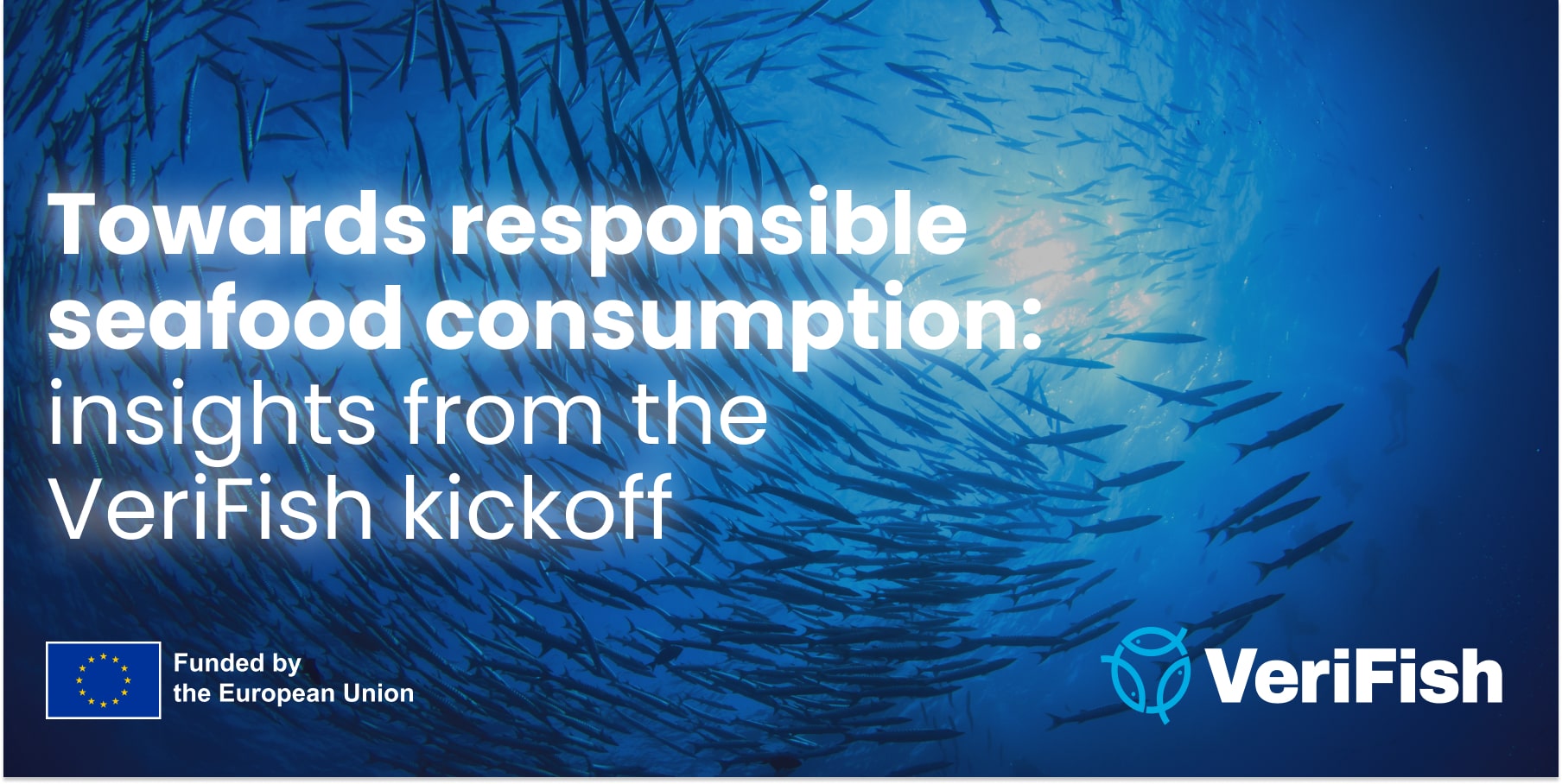
Officially launched in Brussels on 14 May, the VeriFish Horizon Europe project will deliver an indicator framework to facilitate understanding of the complexity that lays behind the
definition of sustainable seafood, to enhance communication about the importance of production and consumption of sustainable seafood and aquaculture.
Despite its potential advantages in terms of climate impact, sustainability, and nutrition, seafood is frequently disregarded or lumped together with meat. The potential benefits of seafood are often
overlooked, particularly in the transition towards a sustainable, equitable and balanced protein system. Seafood consumption in Europe is low compared to meat products, and locally produced seafood often cannot compete with imported products because consumers do not know about or value local seafood.
To enable healthy and sustainable choices, consumers need information about sustainability and nutrient values as well as provenance and potential health risks and benefits.
In this context, the VeriFish project steps in. Funded under the HORIZON-MISS-2023-OCEAN-01-10 “Choose your fish: a campaign for responsible consumption of products from the sea” call and the Horizon Mission “Restore our oceans and waters”, the project will provide a framework of verifiable sustainability indicators based on existing EU and global databases. VeriFish will work on the creation of a prototype web application, a series of media products and recommendations for communicating sustainability indicators to various stakeholders including guidelines for retail and the hospitality sectors. The goal is to provide an accessible and dynamic framework for the improvement of communication and understanding of sustainable seafood production and consumption.
The primary goal of VeriFish is to develop ways to integrate indicators from different sources and to make recommendations for how to present and visualise different types of indicators in a uniform
manner for a specific seafood type and consumer group. For that, VeriFish will elaborate a framework of verifiable indicators, considering environmental sustainability, social sustainability, origin, provenance, processes, health, and nutrition, leveraging on trustworthy data sources from FAO Global Record of Stocks and Fisheries, EUROFIR’s FoodEXplorer, FISHBASE, the global species database of fish species, and more.
Several media products, including guidelines and a prototype web application, will be developed to help make informed consumption choices. The indicators framework must not only be communicated to seafood producers and retailers, but also to policymakers, citizens and children. Therefore, a storytelling series, recipe books for kids, puzzles, and posters are among the planned product outputs. Finally, the project will develop and publish European Good Practice recommendations, co-designed with seafood sector stakeholders, on how to efficiently use the indicator framework to communicate with citizens.
The VeriFish website will be launched in June at verifish.info from where one can also reach the project’s social media accounts on X (formerly
Twitter), Facebook, Instagram, LinkedIn, and YouTube. VeriFish is set to run for 24 months from 1 May 2024.